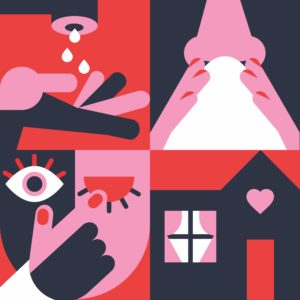The theme of International Day of the World’s Indigenous Peoples 2020 is “Covid-19 and Indigenous peoples’ resilience”.
WACC is strengthening the communication outreach of Indigenous communities in order to bring about greater preparedness and resilience in...
Posted at 00:00h
in
Comment
Last year the South African president elevated the epidemic of violence against women to national crisis level following pressure from activists, promising to put in place a public national register of offenders, a review of cold cases and harsher penalties for perpetrators.
WACC is supporting a project in India that will help civil society sectors understand and address policy issues around digital rights, which have been greatly affected during the Covid-19 pandemic. The...
WACC Global is taking part in a campaign across Africa to promote family farming and its essential role in supporting food security and sustainable development.
Yenkasa Africa, a regional communication for development and rural...
WACC’s Global Media Monitoring Project (GMMP) is featured in the newly-published International Encyclopedia of Gender, Media and Communication (IEGMC), a major reference book that explores various aspects and impacts of how gender is represented in the world’s media.
The IEGMC discusses...
Posted at 00:00h
in
Comment
No apologies for quoting at length from “
The Media Isn’t Ready to Cover Climate Apartheid” by Michelle García (The Nation, 17 June 2020).
While praising the public service ethic of many media outlets, whose coverage of the Covid-19 pandemic has been exemplary, she notes an apparent reticence or inability to delve in depth into its impact on the most marginalized. She also questions media preparedness for the greater crisis to follow:
Rising temperatures, fickle rainfall, and drought have made Kenya vulnerable to climate change. With agriculture dominating Kenya’s economy, a big challenge facing family farmers is learning how to adapt to the effects of climate change.
But a particular sector – smallholder...
Fifteen years ago, Sibuguey Bay in southwestern Mindanao, Philippines, was in an alarming state. Fish and other marine resources were nearly depleted due to illegal, unregulated fishing and mangrove deforestation.
But the situation began to...
Posted at 00:00h
in
Comment
[caption id="attachment_26456" align="alignleft" width="300"]

Image: United Nations COVID-19 response[/caption]
In times of disaster, the need to engage with affected communities to ensure useful, timely and accurate information is mutually shared is increasingly recognised as essential.
When the coronavirus pandemic is over, and researchers look back on how Syrian refugees not only struggled under its weight, but also demonstrated resilience, a good source of information would...












 Image: United Nations COVID-19 response[/caption]
In times of disaster, the need to engage with affected communities to ensure useful, timely and accurate information is mutually shared is increasingly recognised as essential.
Image: United Nations COVID-19 response[/caption]
In times of disaster, the need to engage with affected communities to ensure useful, timely and accurate information is mutually shared is increasingly recognised as essential. 